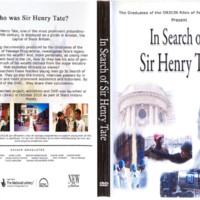
1807 and Tate
The industrialist Sir Henry Tate was the early benefactor of the Tate Collection, rooted in the art of the 18th and 19th centuries. Tate's fortune - much of which was spent on philanthropic initiatives in Britain - was founded on the importation and refining of sugar, a commodity inextricably linked to slave labour in the Caribbean. There were a number of initiatives across the Tate galleries to explore these connections. 'Tracks of Slavery' at Tate Britain displayed a selection of images from the Tate's collections which provided a commentary on the relationship of British society with slavery. Displays at Tate Modern included a selection of new acquisitions linked by their treatment of issues arising from slavery and oppression. Tate Liverpool exhibited paintings by Ellen Gallagher. Special events included Freedom Songs at Tate Britain (workshops to create poetry and music by exploring themes of slavery and freedom) and a discussion at Tate St Ives looking at the links between Cornish maritime traditions, the slave trade and the Caribbean.

In Search of Henry Tate
A bust of Sir Henry Tate, one of the most prominent philanthropists of the 19th century, is displayed on a plinth in Brixton. A group of young men from the ORIGIN Rites of Passage Programme produced a documentary to investigate Tate's legacy and, in particular, the tensions inherent in his acts of generosity being funded by wealth derived from sugar production. The documentary featured interviews, research, and trips to Tate & Lyle plants and buildings. New Initiatives, a youth and community association, developed ORIGIN as an Africentric rites of passage programme, to support young men of African descent in their transition to adulthood. The project, exhibition and DVD was launched at Brixton Tate Library in October 2010.